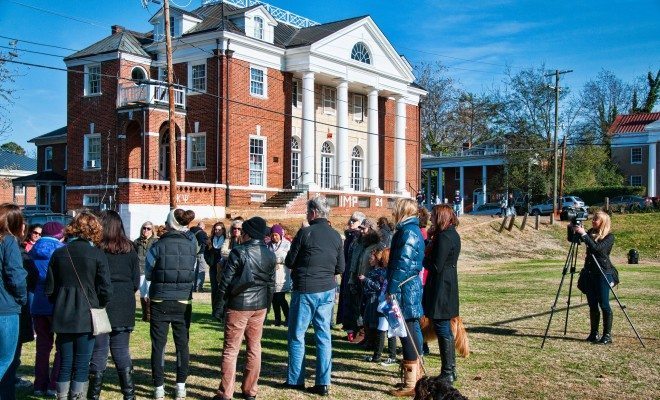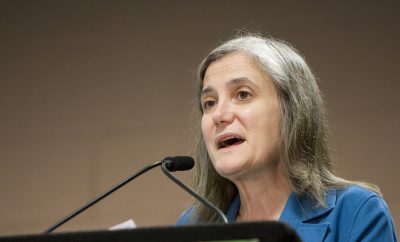 Photo Courtesy of [Bob Mical via Flickr]
Photo Courtesy of [Bob Mical via Flickr]
News
‘A Rape on Campus’ Back in the Spotlight
In November 2014, an article was published by Rolling Stone, titled “A Rape on Campus: A Brutal Assault and Struggle for Justice at UVA.” The author, Sabrina Rubin Erdely, reported about a supposed gang-rape that happened to a girl named “Jackie” at an on-campus fraternity at the University of Virginia.
The article quickly drew national attention and outcry, not only to the fraternity, but also to UVA, because of a named official who reportedly shunned “Jackie” from reporting the sexual assault.
Students protested, demonstrated, and some even vandalized the fraternity house. The Inter-Fraternity Council and the university’s president suspended fraternal activities until January 2015.
The first issue with the story that did not resonate well with readers was the lack of additional sources. The story was written from one point of view, which for the purpose of fairness and accuracy is not how a journalist should go about writing an article. In addition, a simple verification of facts would’ve lead to either more concrete evidence or a lack there of (which was later found to be the case).
The Washington Post published a piece detailing the discrepancies and doubts that they had found with the story, after doing small verifications. Police also conducted a thorough investigation and were unable to find evidence to support what “Jackie” said had happened.
There was no party that night. There was no boy named “Drew” who was a fellow lifeguard and Phi Kappa Psi fraternity member. None of it was true. So why would she lie?
Associate Dean Nicole P. Eramo is seeking roughly $8 million worth in damages in the case against Rolling Stone, its parent company, and Erdely. She argues that she was pegged as the villain and that she was targeted by not only Jackie, but by Rolling Stone as well.
On April 7, Jackie testified under oath, after being ordered by a judge to do so. Although, what she said is confidential and was sealed immediately.
What we do know from this case was that it was a grave disservice to not only the university and the fraternity, but also to the one in five women who will be sexually assaulted during their time in college. This article perpetuated the myth that many of those who report sexual assaults are just lying about what happened to them.
Every day on campuses around the country women and men are sexually assaulted, and many are choosing or are advised not to report their incidents. It is unfortunate that this story, of all of the stories about campus sexual assault to be published, was fabricated.
This also brought up the ethical dilemmas of adhering to a source’s desire to remain confidential and/or requests that other sources not be contacted regarding the incident. Jackie argued that she feared retaliation from her assailants if they were contacted, and Erdely agreed to keep them out of the discussion. However, as the Columbia Journalism Review found in a comprehensive investigation on the magazine, these errors could have been easily caught through simple verification without giving the details of the story away to another source.
Jackie’s lawyers had argued that her testifying would cause her to have to relive the pain and be re-victimized by the process. However, the judge denied the motion and ruled that she had to testify, hopefully to shed some light and understanding on what went wrong in late 2014.
Throughout this entire process many people have tried to figure out who “Jackie” really is. She is the main character in the story, and the person who created the haunting details that were later proved false…so shouldn’t her name be out there too? Some think yes and some think no. Somehow, she has been able to keep her anonymity, unlike the high profile names and organizations that were made public in the article.
The dean of the Columbia Journalism School, Steve Coll, told The Washington Post,
It’s an unusual situation, and I understand the argument on the other side, but I would not name her … She never solicited Rolling Stone to be written about. She’s not responsible for the journalism mistakes. To name her now just feels gratuitous, lacking sufficient public purpose. That could change depending on how the legal cases unfold, but that’s my sense now.








Comments